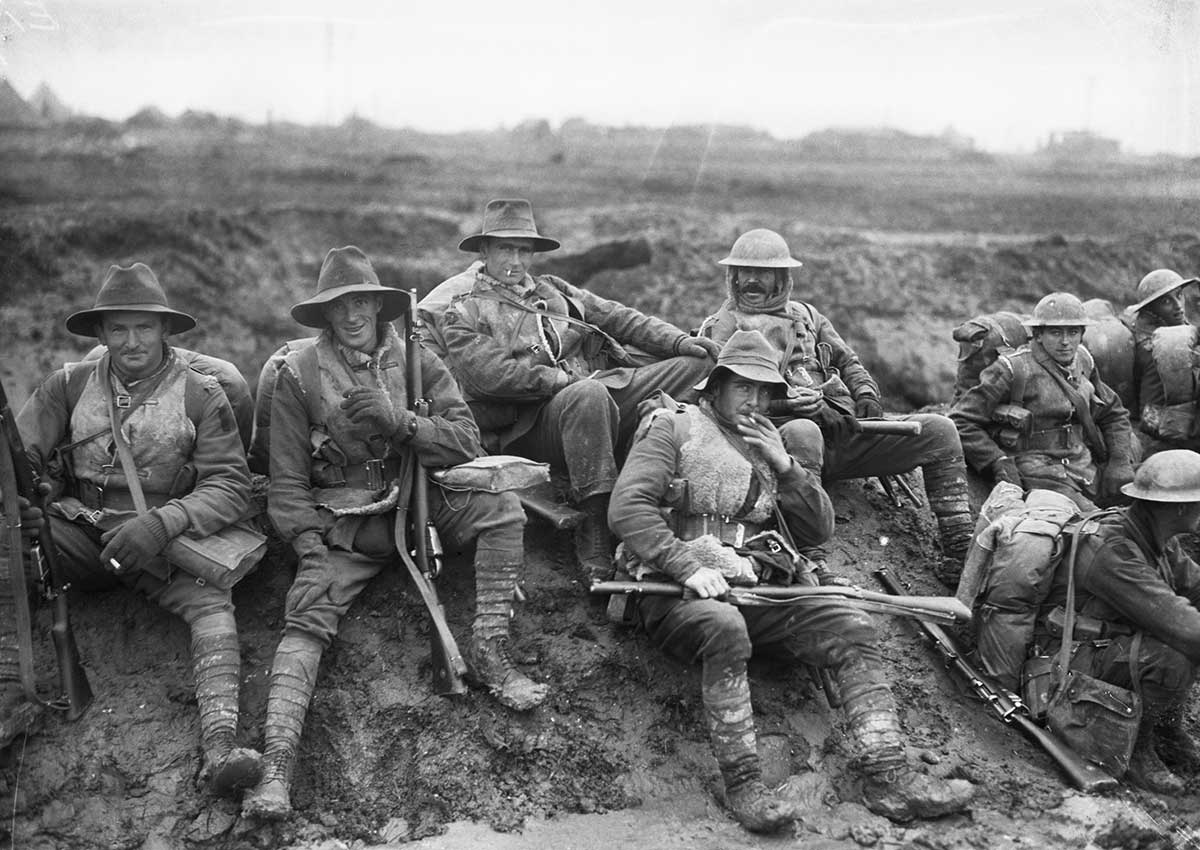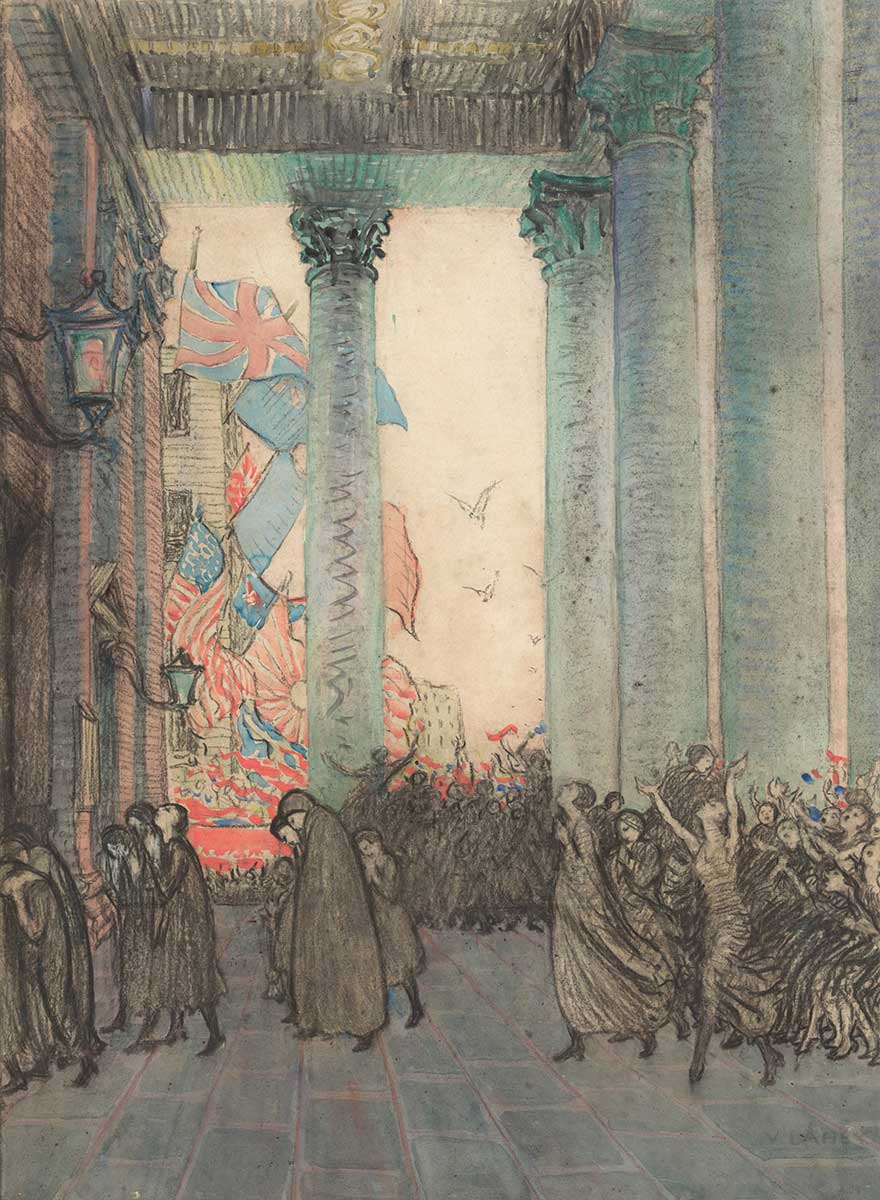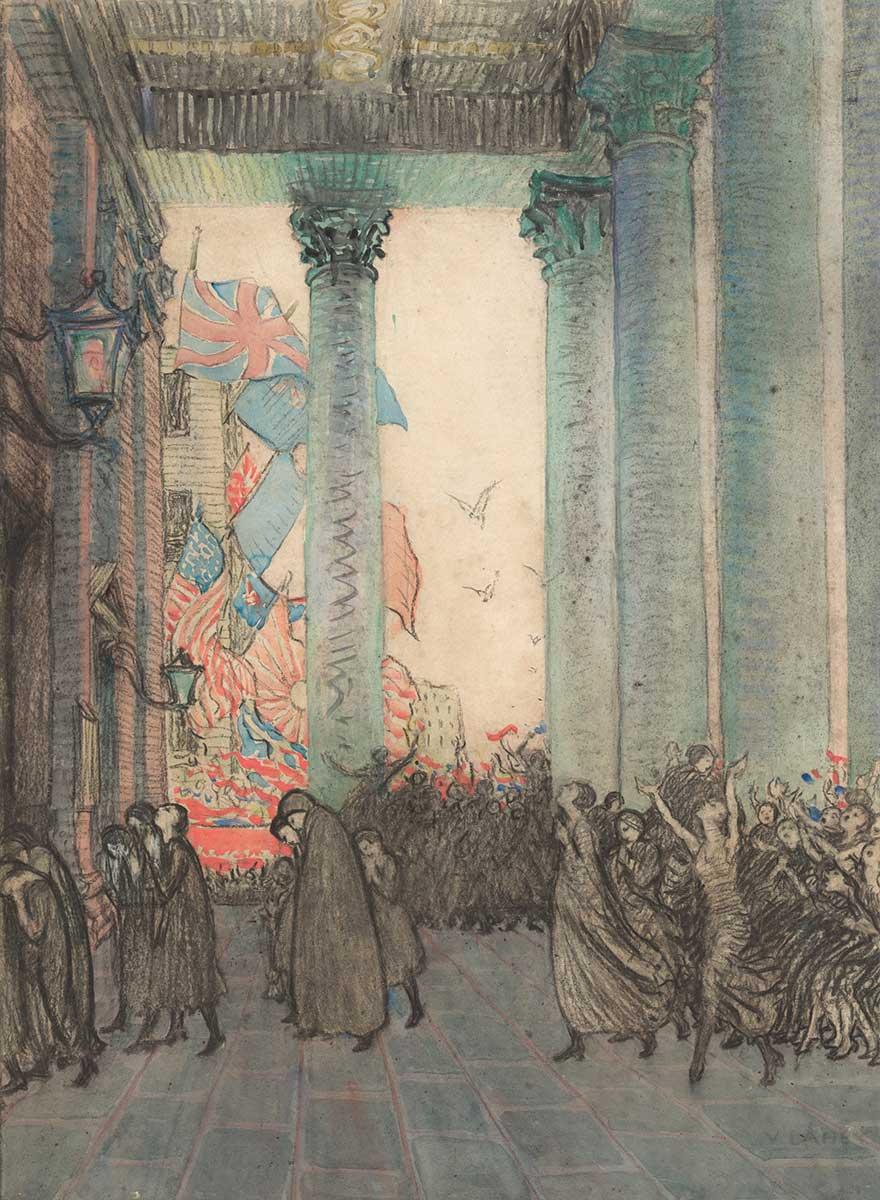Learning module:
War correspondents
War correspondents
36. International relations

When you get to the British High Commission, there are already several journalists there. You push your way to the front.
‘What’s going on?’ you ask a colleague from the Argus.
‘A diplomat from the UK is retiring, and he’s making a statement about how the relationship between Australia and the UK has changed because of the war. He’s giving an unofficial speech, so we’re all here to make sure we capture this rare moment of honesty!’
Rupert Codrington, a diplomat from Great Britain, comes out of the front door of the High Commission building. He looks like he’s been up all night.
‘You Australians have become so independent with your foreign policy now and don’t need Britain the way you used to. Britain used to deal with all that stuff but your experience in the Great War has given you courage.’
The crowd of journalists furiously write down every word. It is uncommon to hear a British diplomat talk so openly!
‘You even sent your own peace delegation to the Paris Peace Conference. You’ve certainly been asserting yourself down here in the Pacific. But Australia should be careful. A country like Australia needs a big, powerful ally.’
He pauses, taking a big puff on his cigar.
‘Your experience of the war has made you a nation. Your Prime Minister Billy Hughes might support empire and Australia’s place in it but he has also helped to make Australia secure and independent in the Pacific. And equally he wanted to preserve the White Australia policy. Australia was the one that rejected including a statement of racial equality in the Paris Peace Agreement.’
Another man from inside the building comes out, beckoning him to come inside and stop sharing his opinions so publicly! Mr Brown ignores him.
‘Australia is still heavily dependent on primary exports, especially to Britain. You still depend on Britain for the machines you need to run many Australian businesses. Australia doesn’t make that kind of thing. If there is ever a major economic depression, I’m afraid Australia will suffer badly because your economy is still tied to Britain’s.’
Finally the other man takes Rupert by the arm and politely but forcefully ushers him back inside the building.
‘That will be all thank you. We will make an announcement once our new diplomat arrives.’
You and your fellow journalists mill around exchanging notes for a while. You all got some great information there for an opinion piece.
Back at the office Mr Callister wants you to turn this material into a feature article to appear in the Sunday edition in a month’s time.
‘I need you to come up with a series of questions to guide the investigation,’ he says. He leads you down to the basement, ‘Here are some earlier investigations of this type that we have done. Read a few so you understand what I’m asking.’
Your task
Mr Callister wants you to come up with a ‘research program’. That is one big question and three sub-questions that help to answer it.
You have a look at two other ones that have been done...
| Big question: How did the war affect Australia? | Big question: Why did Australia enter the war? |
|---|---|
| Sub-question 1: How many casualties were there? | Sub-question 1: What alliances did Australia have before the war? |
| Sub-question 2: What did the war effort cost? | Sub-question 2: What was Australia’s relationship with Britain? |
| Sub-question 3: What harm was there to returned soldiers? | Sub-question 3: Why did Britain join the war? |
Now complete the table below. The big question for your research program must be about relations between Australia and Great Britain.
| Big question: | |
| Sub-question 1: | |
| Sub-question 2: | |
| Sub-question 3: |
You complete your research program questions and submit them to the boss. He’s pleased.
He suggests you head down to the University of Melbourne to meet some academics. Something about the impacts of the war?







